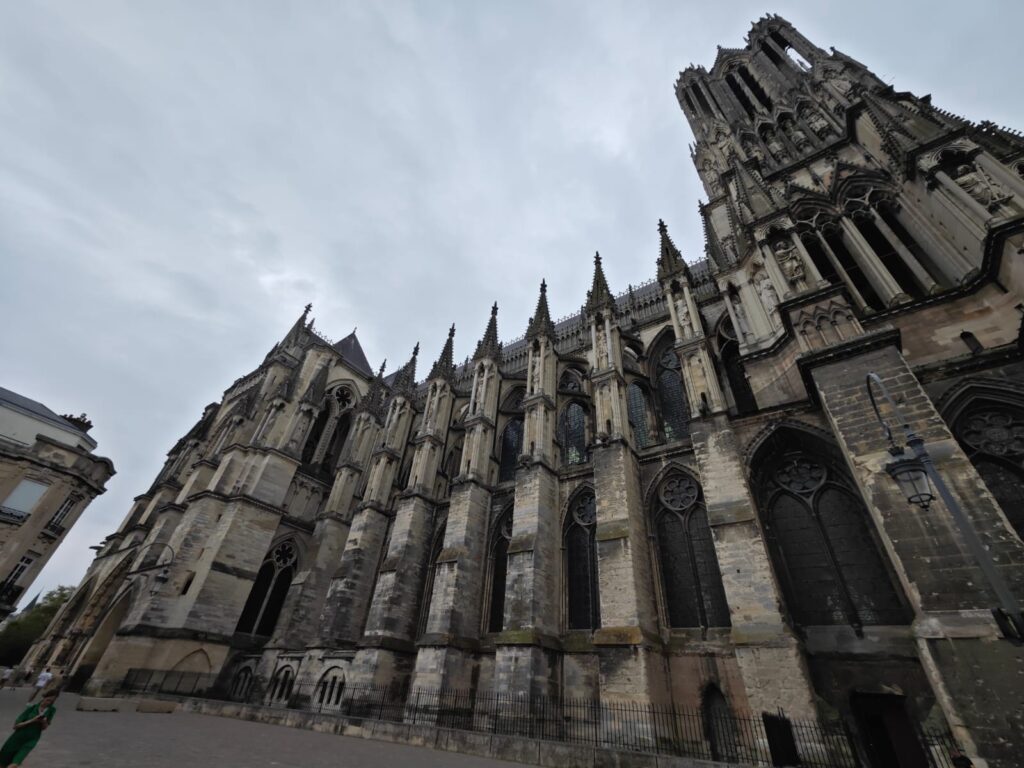
Trisha Ghosal
As my colleague Rohan and I explored the picturesque city of Reims, France, we found ourselves standing before the awe-inspiring Notre Dame Reims. This cathedral, steeped in history, has been the sacred site where 25 kings of France were coronated, their destinies sealed in the presence of the iconic Joan of Arc. The grandeur of this place, with its soaring Gothic architecture and the weight of history in its stones, left us both humbled and reflective. But what struck me most was the striking parallel between the coronations of these kings and the upcoming Paris Paralympics, now just a week away.
Notre Dame Reims is not just a monument; it’s a symbol of power, responsibility, and the momentous transition from aspirant to sovereign. Standing in the very spot where kings once knelt to receive their crowns, I couldn’t help but draw a connection to the Paralympians who, in just a few days, will stand on podiums, their national flags rising behind them, as they are crowned with medals that represent years of sacrifice, determination, and unwavering belief.
The coronation of a king is a moment of triumph, but it is also the beginning of a new journey—one laden with the weight of expectations and the responsibility to lead a nation. In much the same way, when a Paralympian receives their medal, it is the culmination of a lifetime of dreams, but it also marks the start of a new chapter. They are no longer just athletes; they are now champions, role models, and symbols of their country’s pride and hope. The medal, like a crown, is a tangible representation of their achievement, but it also comes with the burden of maintaining that excellence, of inspiring future generations, and of bearing the collective aspirations of those who look up to them.
As I wandered through the cathedral, the connection between these two forms of coronation became ever clearer. The kings of France, after their coronation, were tasked with upholding the honour and dignity of their realm. Similarly, the Paralympians, after standing victorious on the podium, carry with them the honour of their nations, the pride of their communities, and the hope of countless others who see in them a reflection of their own dreams. The coronation, whether of a king or an athlete, is a recognition of past achievements but also a solemn vow to continue striving for greatness.

Next week, as the Paris Paralympics begin, the world will witness the crowning of new champions. For some, it will be their first taste of glory; for others, it will be a reaffirmation of their place among the elite. But for all of them, the moment will be one of profound significance—a moment when their journey of perseverance is validated, and they are entrusted with the legacy of greatness.
In the quiet reverence of Notre Dame Reims, I felt the echoes of these forthcoming triumphs. Just as the cathedral has borne witness to the rise of kings, the arenas of Paris will soon witness the rise of new heroes. These athletes, much like the monarchs of old, will carry the hopes of their nations on their shoulders, their victories a beacon of what is possible when the human spirit transcends all boundaries.
And so, as we left the cathedral, I carried with me a deeper understanding of what it means to be coronated—not just as a king, but as a champion, a leader, a symbol of resilience and hope. The Paris Paralympics will be a coronation in every sense of the word, a celebration not just of victory, but of the indomitable human spirit that rises, again and again, to meet the challenge.
For more sports content: https://revsportz.in/




